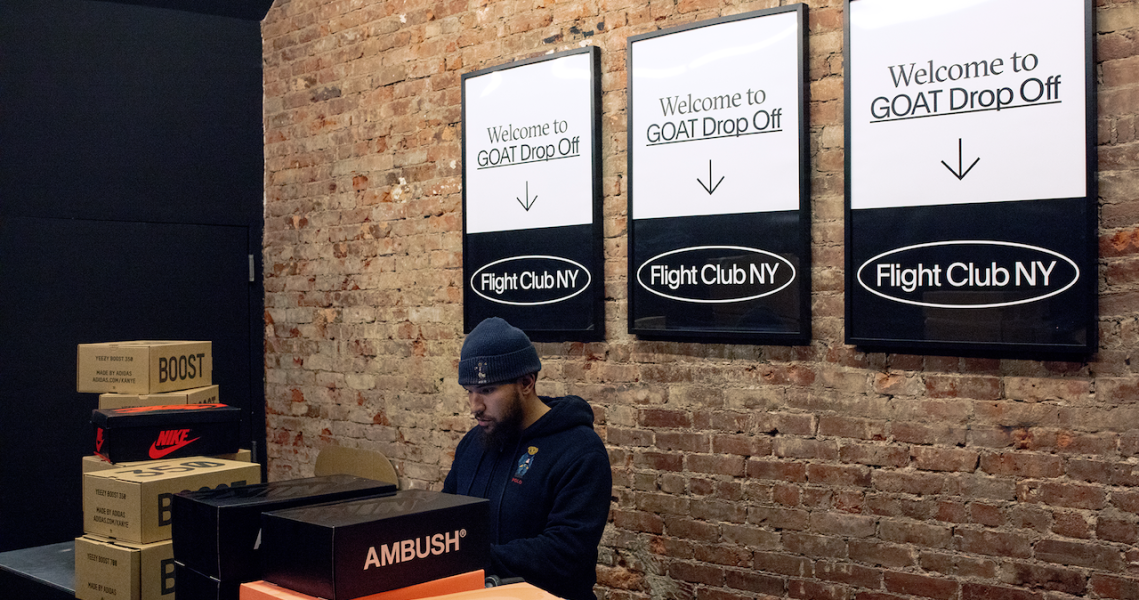Sneaker resale platforms don’t want to just dress your feet, they want to dress you from head to toe.
Six-year-old resale platform GOAT launched apparel in 2019, but in the last six months, apparel sales — particularly to women — have taken off, according to CEO Eddy Lu. Apparel sales were up 500% year-over-year in the last 12 months, with women making up 40% of GOAT’s apparel customers. The growth in apparel led to a new funding round for the company, announced on Thursday. Spearheaded by Park West Asset Management, the $195 million round doubled GOAT’s valuation from $1.8 billion to $3.7 billion.
“GOAT’s combination of premier e-commerce and brick-and-mortar assets, which include the iconic GOAT and Flight Club brands, enable it to engage its global community in unique ways and capture huge market opportunities across multiple lifestyle categories. That’s while remaining authentic and true to its values,” said Tyras Bookman, portfolio manager at Park West Asset Management, in an emailed statement.
Sen Sugano, chief brand officer at GOAT, said in February that women’s apparel is growing twice as fast as men’s, thanks to launches from brands like Alexander McQueen and Versace. Those brands have worked directly with GOAT to sell new products on its site, adding to the styles that customers are reselling among themselves.
“There’s a lot of overlap between the sneaker customer and the apparel customer,” Sugano said. “It’s been a nice segue getting them from sneakers to apparel. And what’s been helpful is that a lot of the sneaker brands we already had, like Nike, are also collaborating with the fashion labels we want to bring in. So there’s an easy continuity there.”
StockX, GOAT’s main competitor in the streetwear resale market, has also been branching out from sneakers, led by CEO Scott Cutler who joined the company in 2019. Category diversification has been one of the main goals of the company, and it’s now selling electronics and collectibles. In terms of valuation, it’s barely edging out GOAT, with $3.8 billion compared to GOAT’s $3.7 billion.
But GOAT does have a slight advantage in gross merchandise value, or the total amount of product sold on the platform: It saw $2 billion in GMV in 2020, compared to StockX’s $1.8 billion.
Ad position: web_incontent_pos1
As the competition between these two platforms, best known for their sneakers, grows, it’s likely that sneakers will not be the decisive battleground. GOAT’s sneaker sales grew 100% year-over-year in 2020, and StockX has seen more explosive growth in electronics sales, which launched in 2019 and grew 75x from the third quarter to the fourth quarter of 2020. Sneakers are still a big business. Total sales across the industry were $70 billion last year, and they’re expected to hit $98 billion by 2025. But apparel will be much more competitive as a growth category for these platforms.
StockX will likely continue to see growth from hard-to-find collaborations, like the Supreme x North Face jackets which were among the best-selling items on StockX in the fourth quarter of 2020. Meanwhile, Sugano said GOAT will likely continue to work directly with brands to release products straight to the platform.




